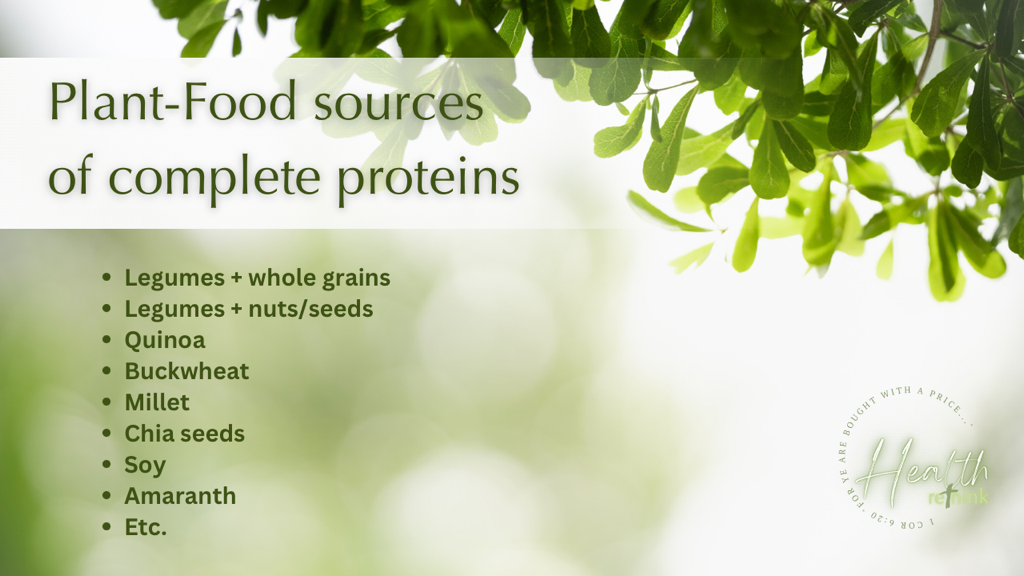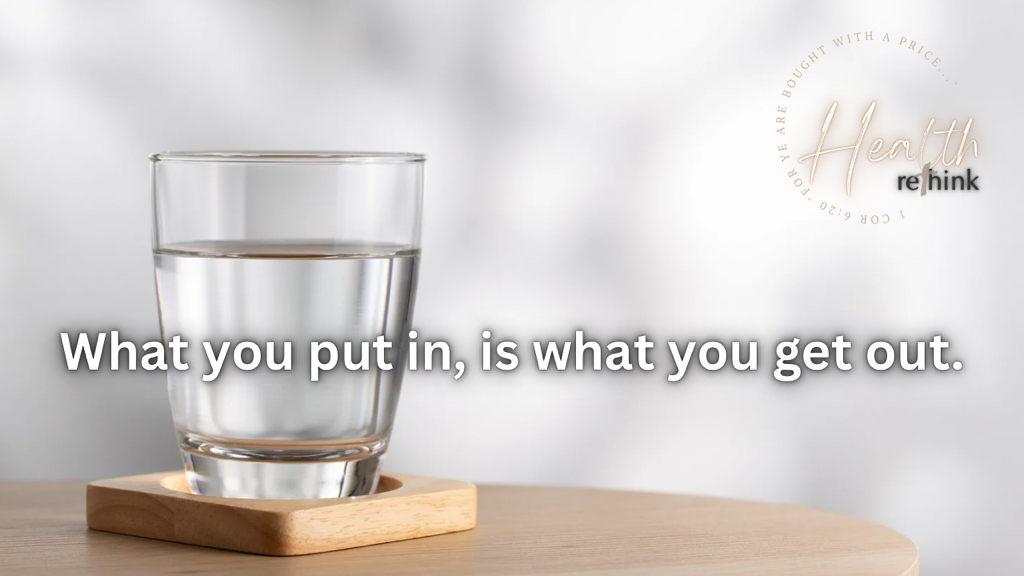|
Where to begin... there is so much one could say about this topic.
Actually, on second thought, there are a few BASIC principles that make a HUGE difference to your nutrition. Right from the start, I would like to point you to a great resource website if you need information on nutrition: visit the blog by Dr Joyce Choe and the Wholeness Market website for valuable insights and great resources. Their cookbook is available as an eBook and it contains excellent info and recipes. While you are here though, we will do our best to set out a basic summary, but please do feel free to contact us for more detailed information, free resources, tips and tricks. Converting your kitchen could feel daunting, and no one wants to make changes unless they are necessary. So let's first talk about what is absolutely essential to consider during your kitchen (Health Head Quarters or HHQ) renovation. There are 4 essential elements: |
|
1. Timing meals
Space meals so that there is sufficient time for digestion of one meal to complete before you eat the next meal. For a plant-based meal, you need 4-5 hours to pass after completing one meal, before you can safely bring the next meal's food into the stomach. This must then be followed by a short break (at least 30-60min) for digestive muscles to recuperate before their next work-load comes in.
For meals containing dairy and/or meat, you need to allow longer digestion times (6-8 hours) plus the break time.
Why is this essential? Because adding new food to partially digested food in one stomach (yes, you don't have extra stomachs like cows) causes both batches of food to ferment and essentially become rotten inside the digestive tract. Rotting food = toxins.
Not good.
So... spacing meals is absolutely the most important starting point in your renovation project.
P.S. What about snacks? Just add them to your main meals. Healthy snack foods make wonderful added boosts to ensure that you don't feel like you are starving before the next meal. Nuts, seeds, fresh greenery, etc. Bulk up your main meals and avoid adding any food or snack to the stomach between set meal-times. Eating a snack 2-3 hours after a meal, adds that into a mixture of half-digested food (while digestive enzymes are not yet sufficiently produced for digesting the next food). This results in fermentation of the entire mixture, releasing a mass of toxins into the system. Again - rotting food in the stomach or intestines, is NOT good.
For meals containing dairy and/or meat, you need to allow longer digestion times (6-8 hours) plus the break time.
Why is this essential? Because adding new food to partially digested food in one stomach (yes, you don't have extra stomachs like cows) causes both batches of food to ferment and essentially become rotten inside the digestive tract. Rotting food = toxins.
Not good.
So... spacing meals is absolutely the most important starting point in your renovation project.
P.S. What about snacks? Just add them to your main meals. Healthy snack foods make wonderful added boosts to ensure that you don't feel like you are starving before the next meal. Nuts, seeds, fresh greenery, etc. Bulk up your main meals and avoid adding any food or snack to the stomach between set meal-times. Eating a snack 2-3 hours after a meal, adds that into a mixture of half-digested food (while digestive enzymes are not yet sufficiently produced for digesting the next food). This results in fermentation of the entire mixture, releasing a mass of toxins into the system. Again - rotting food in the stomach or intestines, is NOT good.
2. Rest your gut
Your stomach needs to rest. It is made up almost entirely of muscle layers and secretory glands.
The muscles need to rest after hours of continuous work, squeezing food into a pulp.
Secretory glands need rest-time to re-build digestive juices.
If the muscle is fatigued, you get paresis (like in gastroparesis - Google it). This means food stays in the stomach for too long, it rots before entering into the intestines and toxins are released in high quantities.
Not ideal!
If the gastric juices are insufficiently replenished after glands secrete digestive acids and enzymes, then food is not chemically digested and ... yes, you guessed it... it also rots.
No matter which way you look at it, the less often food rots in the stomach, the more good stuff you will absorb from your meal. So if you thought that eating more frequently gives you a chance to take in extra nutrition, think again. Eating too often means your body can't absorb the good stuff from your food, and your food becomes toxic.
Spacing meals and allowing the digestive tract to rest, ensures optimal absorption of all the nutrients in your meals.
Win-win.
The muscles need to rest after hours of continuous work, squeezing food into a pulp.
Secretory glands need rest-time to re-build digestive juices.
If the muscle is fatigued, you get paresis (like in gastroparesis - Google it). This means food stays in the stomach for too long, it rots before entering into the intestines and toxins are released in high quantities.
Not ideal!
If the gastric juices are insufficiently replenished after glands secrete digestive acids and enzymes, then food is not chemically digested and ... yes, you guessed it... it also rots.
No matter which way you look at it, the less often food rots in the stomach, the more good stuff you will absorb from your meal. So if you thought that eating more frequently gives you a chance to take in extra nutrition, think again. Eating too often means your body can't absorb the good stuff from your food, and your food becomes toxic.
Spacing meals and allowing the digestive tract to rest, ensures optimal absorption of all the nutrients in your meals.
Win-win.
3. Ingredients and combo's
Combining certain ingredients together, results in chemical reactions taking place in the stomach or intestines that lead to formation of harmful substances, or sometimes fast-tracking rotting of food.
A few things to avoid combining in one meal:
Golden rules for choosing your menu:
Simplicity of ingredients (make up the bulk with fresh, unprocessed foods).
Include plenty raw fruits or veg in every meal (but not fruit&veg in one meal).
Cook grains well. Wholegrain is always best.
Limit variety at a single meal, but vary foods over different meals. Eat 3-4 different kinds of foods, at most, in any one meal.
Always avoid heating oils, but add cold-pressed oils to food after cooking. Grapeseed and coconut oil withstand the highest temperatures, but if you can dry-fry or water-fry or air-fry, this is always best.
Last, but not least, I strongly urge you to study true science regarding a whole-foods plant-based diet. The evidence is absolutely unmistakable. A plant-based diet is superior to all other diets, in sustaining the immune system, making good blood, providing optimal fuel for cell development and restoration, and maintaining the best state of health. When a plant-based menu is put together with skill and insight, it will offer the best possible food your body could ever ask for.
A few things to avoid combining in one meal:
- Fruit and veg should be served in separate meals (see this handy chart for easy reference).
- Dairy milk should not be eaten with sugar in the same meal or drink. They combine to form alcohol and other fermentation. And yes, I am a supporter of full abstinence from alcohol. There is no such thing as small amounts of battery acid or bleaching liquids that are non-toxic to drink. Alcohol, even in small amounts, is harmful and unkind to your body.
- Milk, eggs and sugar is a particularly unhealthy combo. So yes, vegan deserts are often the best option for the occasional sweet treat. However, they can contain other avoid-items, so check the ingredients with care.
- Alcohol, caffeine, black pepper, strong spices and any other neurologically stimulating foods, are not healthy. No matter how many "medical" articles you find that defend their benefits, they simply don't give you any benefit that outweighs the damage. There are so many wonderful ways to add flavour to food without using neuro-stimulants. If you eat to provide the best nutrition to preserve your health, rather than focusing purely on taste, then this is a good point to give attention to. Blood-stimulants, however (such as cayenne pepper) are hugely beneficial herbs and can be used to flavour foods.
Golden rules for choosing your menu:
Simplicity of ingredients (make up the bulk with fresh, unprocessed foods).
Include plenty raw fruits or veg in every meal (but not fruit&veg in one meal).
Cook grains well. Wholegrain is always best.
Limit variety at a single meal, but vary foods over different meals. Eat 3-4 different kinds of foods, at most, in any one meal.
Always avoid heating oils, but add cold-pressed oils to food after cooking. Grapeseed and coconut oil withstand the highest temperatures, but if you can dry-fry or water-fry or air-fry, this is always best.
Last, but not least, I strongly urge you to study true science regarding a whole-foods plant-based diet. The evidence is absolutely unmistakable. A plant-based diet is superior to all other diets, in sustaining the immune system, making good blood, providing optimal fuel for cell development and restoration, and maintaining the best state of health. When a plant-based menu is put together with skill and insight, it will offer the best possible food your body could ever ask for.
4. Purpose: making good blood
What is the goal of eating?
Enjoying food is important, yes. But one thing you cannot get away from, is that whatever you put into your body, will get into your blood. And your blood is the transport system that takes all that is in it, to every cell in your body.
If you eat toxins, poisons and other nutrient-depleted food, your blood cannot magically transport helpful ingredients to your cells. Your cells cannot build strength, vigor, stamina, beauty, purity, or any other form of healthy structure, without the right ingredients.
As you plan your home renovation, shopping for quality building materials is a step you can't skip. In the same way, choosing with care what you put into your body (via your stomach, your lungs, your eyes and your ears) will ultimately determine the quality of your physical and mental health. It is a simple fact of life.
Enjoying food is important, yes. But one thing you cannot get away from, is that whatever you put into your body, will get into your blood. And your blood is the transport system that takes all that is in it, to every cell in your body.
If you eat toxins, poisons and other nutrient-depleted food, your blood cannot magically transport helpful ingredients to your cells. Your cells cannot build strength, vigor, stamina, beauty, purity, or any other form of healthy structure, without the right ingredients.
As you plan your home renovation, shopping for quality building materials is a step you can't skip. In the same way, choosing with care what you put into your body (via your stomach, your lungs, your eyes and your ears) will ultimately determine the quality of your physical and mental health. It is a simple fact of life.
For you are bought with a price: therefore glorify God in your body, and in your spirit, which are God's.
1 Corinthians 6:20
1 Corinthians 6:20
In fruits, nuts, vegetables, grains and seeds are found all the food elements to make good blood.
--Ellen G. White, Counsels on Health--
--Ellen G. White, Counsels on Health--
What next
|
Yes, food is not the ultimate be-all-and-end-all of good health.
Let's move on to the next item in NEWSTART. Yes, really. Just click. |


